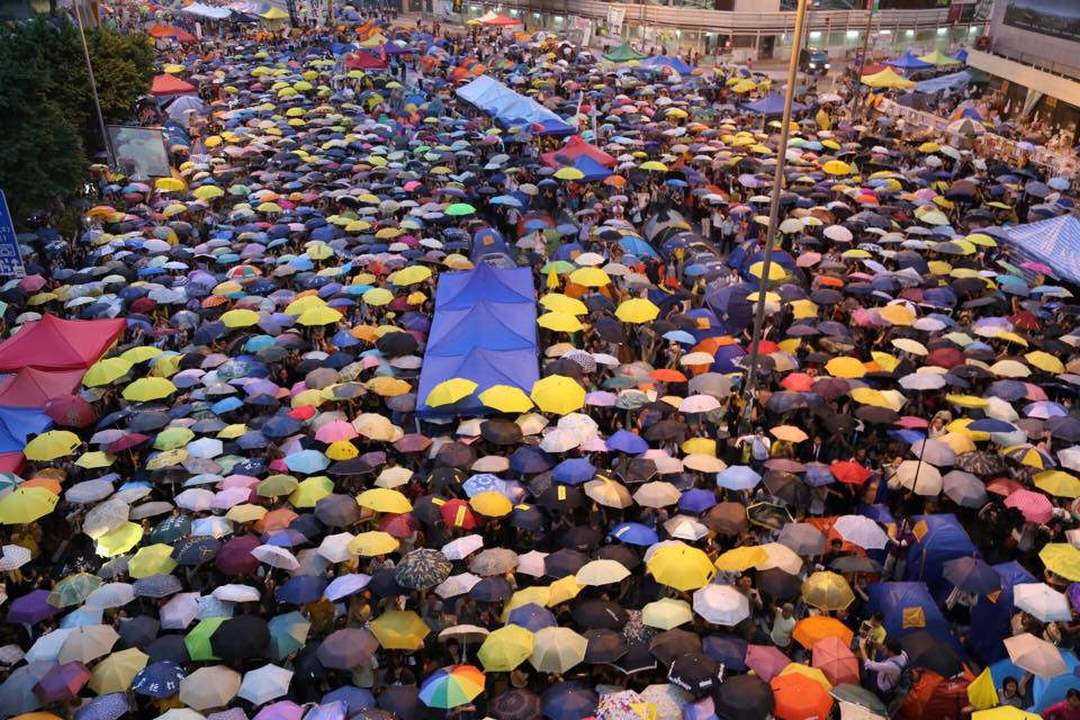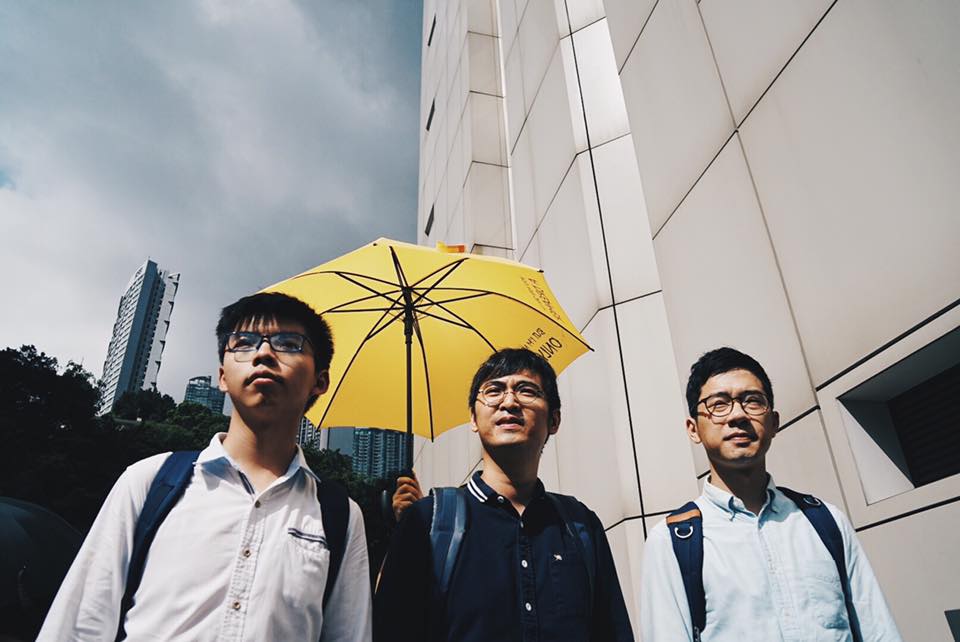A bipartisan group of US lawmakers has nominated Hong Kong’s pro-democracy Umbrella Movement for the 2018 Nobel Peace Prize.
During the 2014 Occupy protests, hundreds of thousands of demonstrators descended onto the main thoroughfares of Hong Kong demanding universal suffrage.

The group of US politicians nominated activists Joshua Wong, Nathan Law, Alex Chow, and the entire pro-democracy movement in Hong Kong “in recognition of their peaceful efforts to bring political reform and self-determination to Hong Kong and protect the autonomy and freedom guaranteed Hong Kong in the Sino-British Joint Declaration.”
The effort was led by Senator Marco Rubio and Representative Chris Smith, the respective chair and co-chair of the US Congressional-Executive Commission on China, an independent agency with a mandate from Congress to monitor human rights in China.
“This nomination could not be more timely as Hong Kong’s long-cherished autonomy continues to erode, and Umbrella Movement leaders face reprisals simply for espousing basic human rights and freedoms,” said Rubio.
“Joshua Wong and his fellow pro-democracy advocates have been unflinching in their peaceful and principled commitment to a free and prosperous Hong Kong. They are an inspiration and their cause has reverberations far beyond their city,” he added.

“We all owe Hong Kong’s Umbrella Movement a debt of gratitude,” said Smith. “In the tradition of all great Nobel Peace Prize laureates, they continue to hold up a mirror to the ugly face of authoritarianism and show us again that the desire for democracy and human rights are universal ideals, shared by all people, everywhere.”
“How fitting would it be for Hong Kong’s champions of freedom to receive the peace prize a year after the death of Nobel Laureate Liu Xiaobo. It would be both an appropriate tribute and a reminder that the struggle for democracy and rights are not alien to the people of mainland China, but an indelible part of their great history and culture—and an important part of their future.”
Beijing faced international backlash for its treatment of Chinese dissident Liu Xiaobo, whose death from liver cancer in July made China the first country since Nazi Germany to allow a Nobel Peace Prize winner to die in custody.
The Hong Kong government responded to the Commission’s 2017 annual report by saying that foreign legislatures should not interfere with the internal affairs of the city.
